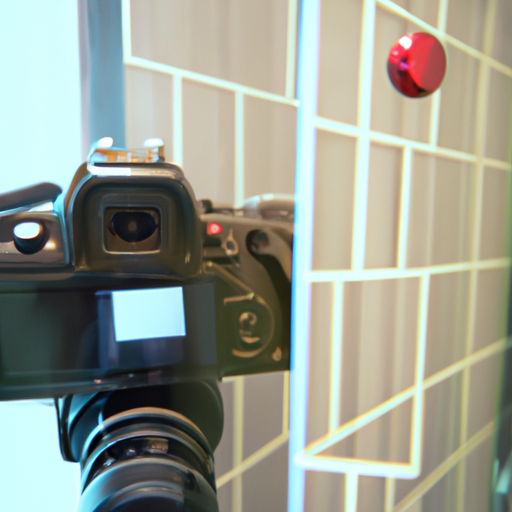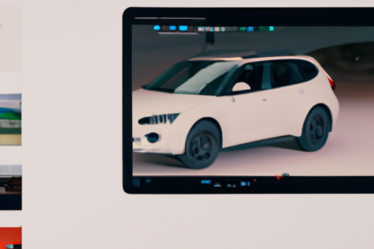
The Impact of New Technology on Guest Experience in the Hotel Industry
The hotel industry has always been at the forefront of embracing new technology to enhance the guest experience. From the early days of televisions in hotel rooms to the more recent introduction of mobile check-in and keyless entry, hotels have continuously sought ways to improve the stay of their guests. In this article, we will explore the impact of new technology on the guest experience in the hotel industry.
One of the most significant advancements in recent years has been the integration of smartphones into the hotel experience. With the rise of mobile apps, guests can now check-in, access their room, and even control the temperature and lighting from their own devices. This not only provides convenience for guests but also allows hotels to streamline their operations and reduce costs. By eliminating the need for physical keys and front desk check-ins, hotels can allocate their resources more efficiently and provide a more personalized experience for their guests.
Another area where technology has made a significant impact is in the realm of guest communication. In the past, guests would have to call the front desk or visit the concierge for any requests or inquiries. However, with the advent of chatbots and messaging platforms, guests can now communicate with hotel staff in real-time, without having to leave their rooms. This not only saves time for both guests and staff but also allows for more efficient problem-solving and personalized service. Whether it’s requesting extra towels or making dinner reservations, guests can now have their needs met with just a few taps on their smartphones.
Furthermore, technology has also revolutionized the way guests explore and experience their destinations. With the rise of online travel platforms and mobile apps, guests can now access a wealth of information about local attractions, restaurants, and events. This allows them to plan their itineraries more effectively and make the most of their stay. Additionally, hotels can leverage this technology to provide personalized recommendations and offers based on guests’ preferences and interests. By utilizing data analytics and machine learning, hotels can create tailored experiences that cater to each guest’s unique tastes and preferences.
In addition to enhancing the guest experience, technology has also played a crucial role in improving hotel operations. With the use of data analytics and automation, hotels can now optimize their inventory management, pricing strategies, and marketing efforts. By analyzing historical data and market trends, hotels can make more informed decisions and maximize their revenue potential. Furthermore, automation tools can streamline repetitive tasks, such as housekeeping and maintenance, allowing staff to focus on providing exceptional service to guests.
While the integration of new technology has undoubtedly brought numerous benefits to the hotel industry, it is essential to strike a balance between technology and human interaction. While guests appreciate the convenience and efficiency that technology provides, they also value the personal touch and warmth that only human interaction can offer. Hotels must find ways to leverage technology while still maintaining a high level of personalized service.
In conclusion, the arrival of new technology has had a profound impact on the guest experience in the hotel industry. From mobile check-ins to personalized recommendations, technology has transformed the way guests interact with hotels and explore their destinations. By embracing these advancements, hotels can provide a more convenient, efficient, and personalized experience for their guests while also optimizing their operations. However, it is crucial to remember that technology should complement, not replace, human interaction in the hotel industry.
How New Technology is Revolutionizing Hotel Operations and Efficiency

The hotel industry has always been at the forefront of innovation, constantly seeking ways to improve operations and enhance the guest experience. In recent years, the arrival of new technology has revolutionized the way hotels operate, leading to increased efficiency and improved guest satisfaction.
One of the most significant advancements in hotel technology is the use of mobile apps. These apps allow guests to check-in and check-out seamlessly, eliminating the need for long queues at the front desk. With just a few taps on their smartphones, guests can access their room keys and even control the temperature and lighting in their rooms. This not only saves time for both guests and hotel staff but also provides a more personalized and convenient experience.
In addition to mobile apps, hotels are also embracing the use of artificial intelligence (AI) and chatbots to enhance guest interactions. AI-powered chatbots can handle a wide range of guest inquiries, from room service requests to providing local recommendations. These chatbots are available 24/7, ensuring that guests receive prompt assistance whenever they need it. By automating these tasks, hotel staff can focus on more complex and personalized guest interactions, ultimately improving the overall guest experience.
Another area where new technology is making a significant impact is in housekeeping operations. Traditionally, housekeeping staff would rely on manual processes to manage room assignments and track cleaning schedules. However, with the introduction of smart room management systems, these tasks have become much more efficient. These systems use sensors to detect when a guest has checked out, automatically notifying housekeeping staff to clean the room. This not only saves time but also ensures that rooms are cleaned promptly, leading to faster turnaround times for new guests.
Furthermore, hotels are utilizing technology to streamline their inventory management processes. With the help of advanced software systems, hotels can track and manage their inventory in real-time. This allows them to optimize their supply chain, ensuring that they have the right amount of stock at all times. By reducing wastage and minimizing stockouts, hotels can improve their operational efficiency and reduce costs.
The arrival of new technology has also had a significant impact on revenue management in the hotel industry. Revenue management systems use sophisticated algorithms to analyze market demand and adjust room rates accordingly. This allows hotels to maximize their revenue by pricing rooms dynamically based on factors such as occupancy rates, seasonality, and competitor pricing. By leveraging these systems, hotels can optimize their pricing strategies and increase their profitability.
In conclusion, the arrival of new technology has revolutionized hotel operations and efficiency. From mobile apps and AI-powered chatbots to smart room management systems and revenue management software, hotels are embracing these advancements to enhance the guest experience and improve their bottom line. As technology continues to evolve, it is exciting to imagine the possibilities it holds for the future of the hotel industry.
The Future of the Hotel Industry: Embracing New Technology for Success
The hotel industry has always been known for its commitment to providing exceptional customer service and creating memorable experiences for guests. However, with the rapid advancement of technology in recent years, hotels are now faced with the challenge of incorporating new technology into their operations to stay competitive in the market. The arrival of new technology in the hotel industry has brought about significant changes and opportunities for success.
One of the most noticeable changes brought about by new technology is the rise of online booking platforms. In the past, guests would have to call or visit a hotel in person to make a reservation. However, with the advent of online booking platforms, guests can now easily book a room from the comfort of their own homes. This has not only made the booking process more convenient for guests but has also allowed hotels to reach a wider audience and increase their occupancy rates.
In addition to online booking platforms, hotels have also started to embrace the use of mobile technology. Mobile apps have become increasingly popular in the hotel industry, allowing guests to check-in and check-out, request room service, and even control the temperature and lighting in their rooms. This not only enhances the guest experience but also streamlines hotel operations, allowing staff to focus on providing personalized service rather than administrative tasks.
Another area where new technology has made a significant impact is in guest communication. Hotels are now using chatbots and artificial intelligence to provide instant responses to guest inquiries and requests. This not only improves efficiency but also ensures that guests receive prompt and accurate information. Furthermore, hotels are also using social media platforms to engage with guests and build brand loyalty. By leveraging social media, hotels can showcase their amenities, share guest reviews, and even offer personalized recommendations based on guest preferences.
The use of technology in the hotel industry is not limited to guest-facing operations. Hotels are also utilizing technology to improve their back-end processes. For example, many hotels are now using data analytics to gain insights into guest preferences and behavior. This allows hotels to tailor their services and offerings to meet the specific needs of their guests. Additionally, hotels are also using technology to automate tasks such as inventory management and housekeeping, further improving operational efficiency.
While the arrival of new technology in the hotel industry has brought about numerous benefits, it is important for hotels to strike a balance between technology and human interaction. While technology can enhance efficiency and convenience, it cannot replace the personal touch and warmth that comes from interacting with hotel staff. Therefore, it is crucial for hotels to find the right balance between technology and human interaction to provide a truly exceptional guest experience.
In conclusion, the arrival of new technology in the hotel industry has revolutionized the way hotels operate and interact with guests. From online booking platforms to mobile apps and artificial intelligence, hotels are embracing new technology to enhance the guest experience and improve operational efficiency. However, it is important for hotels to find the right balance between technology and human interaction to ensure that guests receive the personalized service they expect. By embracing new technology, hotels can stay competitive in the market and continue to provide exceptional experiences for their guests.


